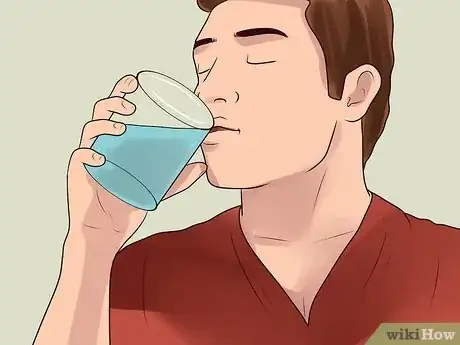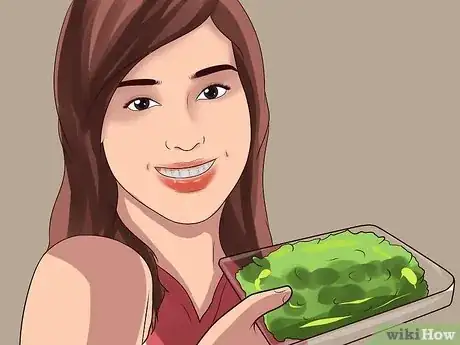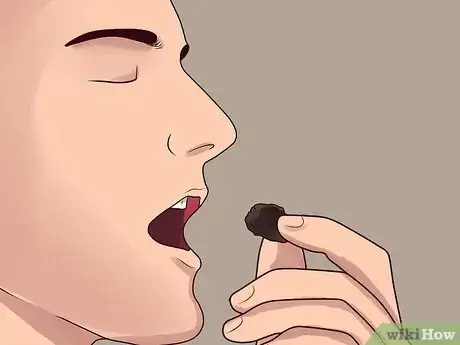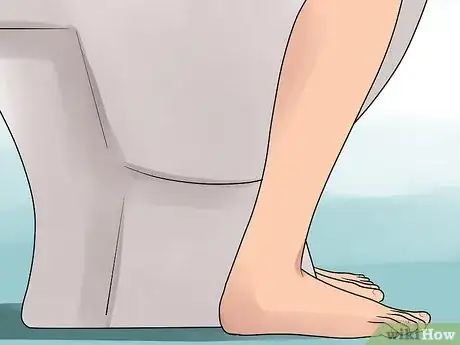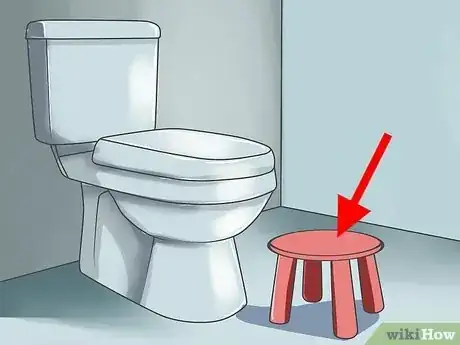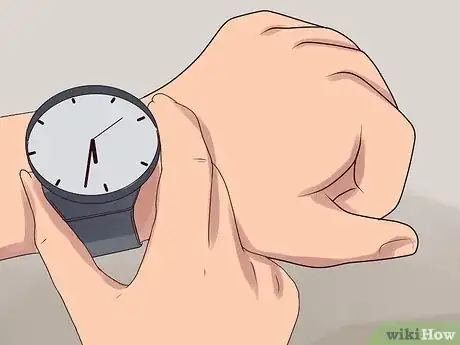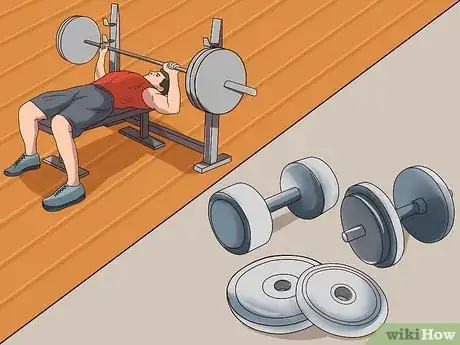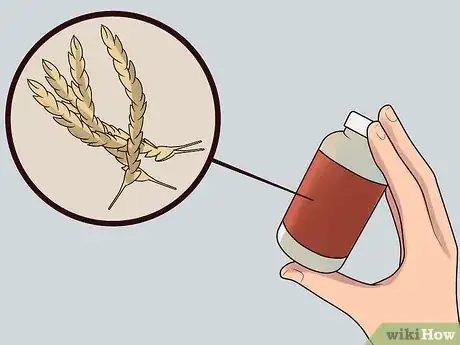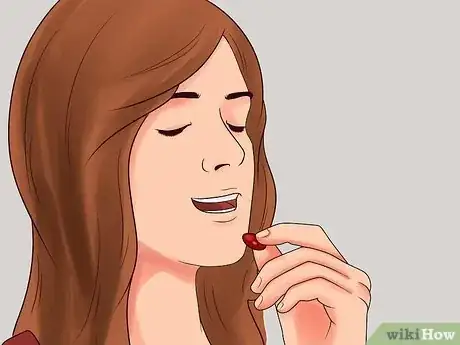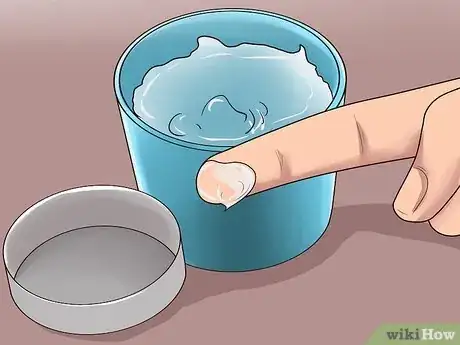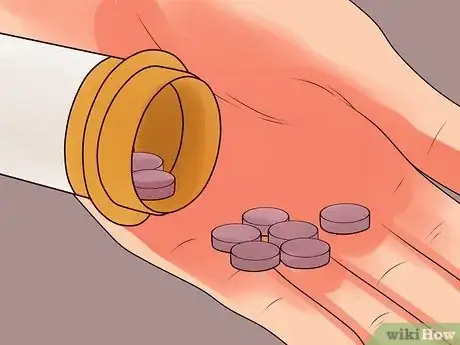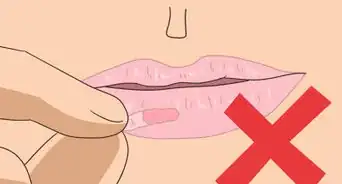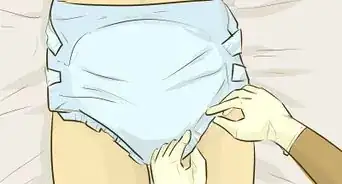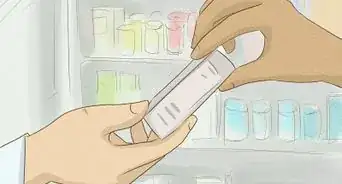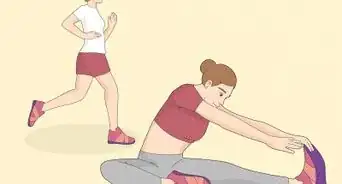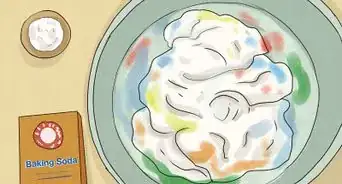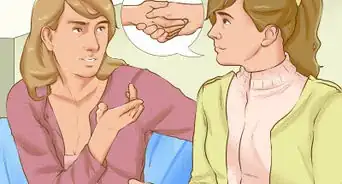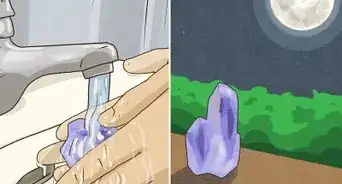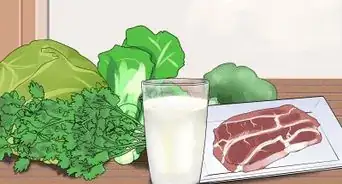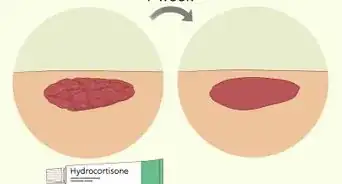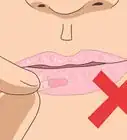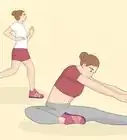wikiHow is a “wiki,” similar to Wikipedia, which means that many of our articles are co-written by multiple authors. To create this article, volunteer authors worked to edit and improve it over time.
There are 11 references cited in this article, which can be found at the bottom of the page.
This article has been viewed 13,356 times.
Severe constipation is defined as a condition wherein you cannot pass stool more than three times a week. This is a very common condition that occurs because of a lack of water in the body, low fiber intake, or other underlying medical conditions. If you are dealing with severe constipation, you can first try altering your diet and lifestyle, and can then consult a doctor about prescriptions for the medications described in Method 2.
Steps
Making Lifestyle Changes
-
1Increase the amount of water you drink each day. Water consumption plays an important role in your ability to defecate. When you drink enough water, you will be able to avoid passing stool that is hard and dry, which can make it easier to defecate. Drinking a lot of water also helps to move your stool along the large intestine.
- While everyone has different drinking requirements, the average adult woman should try to drink at least 2.2 liters (0.6 US gal) of water a day, while the average adult man should try to drink 3 liters (0.8 US gal) of water a day.[1]
-
2Include high amounts of fiber in your diet. Fiber can also be helpful when it comes to treating severe constipation. Fiber helps to bulk up your stool, thereby making it easier for your large intestine to move the stool. Fiber can also help to soften your stools. Try to eat at least 14 grams of fiber for every 1,000 calories of food that you eat.[2] For many men, that means trying to eat at least 30 grams of fiber a day, while women should generally try to eat between 21 and 25 grams a day.[3] Foods that are high in fiber include:
- Legumes: Lentils, black beans, lima beans, and split peas.
- Vegetables: Green peas, artichoke, turnip greens, broccoli, sweet corn, carrots, and Brussel sprouts.
- Fruit: Raspberries, apples, bananas, pears, oranges, and raisins.
-
3Eat prunes every day. As mentioned in the previous step, eating high amounts of fiber can help to relieve constipation. In particular, prunes are very high in fiber and are often recommended for people who are dealing with constipation because they contain sorbitol, which acts as a natural laxative.[4]
- One cup of uncooked prunes contain about 12 grams of fiber, while three dried prunes contain 3.9 grams of fiber.[5]
-
4Drink a cup of coffee. Caffeine, which is found in coffee, has bowel-stimulating properties. Drinking a cup of coffee can help you to pass soft and moist stool because coffee increases peristalsis, which prevents the reabsorption of water in fecal matter.[6] This means that your stool is kept soft and well-formed.
- Try to drink one cup (eight ounces) of coffee a day, unless told otherwise by your doctor.
-
5Do not delay if you feel the urge to defecate. If you are constipated, it is important not to miss the opportunity to pass out stool, if the opportunity arises. If you feel the urge to go to the bathroom, drop everything and go.[7]
- If you hold your stool in, the large intestine will withdraw more water from the stool, making it hard, dry, and more challenging to pass out.
-
6Place a small footstool next to the toilet. Rest both of your feet on this footstool. Doing this will help to elevate your knees above your pelvis. This position helps to facilitate the evacuation of fecal matter by relaxing and opening your anal muscles.
-
7Establish a daily routine when defecating. Having a regular daily pattern may help to prevent and relieve constipation. Try to defecate every morning; take your time and do not rush yourself when sitting on the toilet.
-
8Exercise regularly. Exercising may help to relieve and prevent constipation by increasing your intestinal mobility, which means that it helps to stimulate your large intestine to push out stool. Exercising can also help to increase your metabolism, thereby making your digestive system more efficient.[8]
- If possible, try to exercise 30 minutes a day, five days a week[9] . Exercising can include jogging, swimming, bicycling, rock climbing, and lifting weights.
Taking Medications
-
1Take bulk-forming agents. You can take a fiber supplement, such as a wheat, psyllium, or methyl cellulose supplement each day. These supplements can help to bulk up your fecal matter, thus making it easier to eliminate from your body.
- Your doctor may prescribe a low sub-therapeutic dose that you gradually increase each week.
-
2Try a stool softener. Stool softeners are laxatives, which means that they incorporate fat and water into your stool, making it soft and easier to pass out. These medications are generally used for people who have a short history of severe constipation (which means that they are not frequently constipated).
-
3Talk to your doctor about saline laxatives. These laxatives are saline (or salt water) based, and are often prescribed for people with acute constipation so long as there is no intestinal obstruction. There are three different kinds: magnesium hydroxide, magnesium sulphate, magnesium citrate.[12]
- Magnesium hydroxide works by causing your gut to retain water, which helps to stimulate your colon’s activity, which relieves constipation.
- Magnesium sulphate has a similar mode of action, but works more quickly. It can be effective in three hours if it is taken orally, and can have effects in 15 minutes if it is administered through the rectum. However, it is not recommended for children or people with kidney diseases.
- Magnesium citrate acts in the same way as the two previously mentioned saline laxatives, but you must discuss taking this laxative with your doctor as it will not work for all people.
-
4Consider taking lubricant laxatives. As the name suggests, these laxatives work to lubricate your intestine, which helps to facilitate the passage of stool. They should begin to take effect about eight hours after your take them. They contain mineral oils like fleet and kondremul. You should only take these laxatives after talking to your doctor.
- The normal dose for fleet is 15 to 45 mL per day while the dose for kondremul is 30 to 75 mL taken each day.[13]
-
5Discuss osmotic laxatives with your doctor. These laxatives use osmosis to help distend your bowel, which increases the movements of the colon. Osmosis is a process that brings water to your intestinal tube, which causes the tube to open up.
- The usual dose is 15 to 30 mL each day. It should begin to take effect 24 to 48 hours after you consume the medication.[14]
-
6Consider taking stimulant laxatives. These laxatives help to stimulate the movement of your gut muscles, which helps to push stool out. There are several different kinds of stimulant laxatives, including:
- Senna leaf extract, bisacodyl, and castor oil.
References
- ↑ http://www.mayoclinic.org/healthy-living/nutrition-and-healthy-eating/in-depth/water/art-20044256
- ↑ http://www.everydayhealth.com/health-report/healthy-eating/healthy-ways-to-get-your-daily-fiber.aspx
- ↑ http://www.mayoclinic.org/healthy-living/nutrition-and-healthy-eating/in-depth/high-fiber-foods/art-20050948M
- ↑ http://www.webmd.com/digestive-disorders/dietary-fiber-the-natural-solution-for-constipation
- ↑ http://www.webmd.com/digestive-disorders/dietary-fiber-the-natural-solution-for-constipation
- ↑ http://commonhealth.wbur.org/2013/01/coffee-and-the-ritual-bowel-movement
- ↑ http://www.womenshealthmag.com/health/conditions/constipation-and-impaction
- ↑ http://www.webmd.com/digestive-disorders/exercise-curing-constipation-via-movement
- ↑ http://www.heart.org/HEARTORG/GettingHealthy/PhysicalActivity/FitnessBasics/American-Heart-Association-Recommendations-for-Physical-Activity-in-Adults_UCM_307976_Article.jsp
- ↑ Ford AC, Suares NC. Effect of laxatives and pharmacological therapies in chronic idiopathic constipation: systematic review and meta-analysis. Gut. Feb 2011;60(2):209-18
- ↑ Ford AC, Suares NC. Effect of laxatives and pharmacological therapies in chronic idiopathic constipation: systematic review and meta-analysis. Gut. Feb 2011;60(2):209-18
- ↑ Di Palma JA. Expert commentary--new developments in the treatment of constipation. MedGenMed. Jan 1 2005;7(1):17.
- ↑ Johanson JF. Review of the treatment options for chronic constipation. MedGenMed [serial online]. May 2, 2007;9
- ↑ Johanson JF. Review of the treatment options for chronic constipation. MedGenMed [serial online]. May 2, 2007;9
